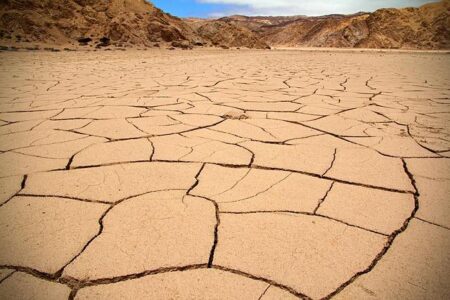Argentina has announced a reduction in export taxes on several key agricultural products, aiming to boost the competitiveness of its farming sector and stimulate international trade. The government’s decision is expected to impact major commodities, including grains and livestock, offering relief to producers amid fluctuating global markets. Industry stakeholders are closely watching how the new tax adjustments will influence Argentina’s role as a leading agricultural exporter.
Argentina Reduces Export Taxes to Boost Agricultural Competitiveness
In an effort to strengthen its position in global markets, Argentina has announced a significant reduction in export taxes on several pivotal agricultural products. This policy shift aims to enhance the profitability and international competitiveness of the country’s farming sector, which has long been burdened by high levies. The move is expected to stimulate increased production and export volumes, particularly benefitting key commodities such as soybeans, corn, and beef. Industry experts suggest that these changes could lead to a more dynamic supply chain and attract renewed investor confidence in Argentina’s agribusiness landscape.
The government’s recalibration of export duties comes amidst growing calls from agricultural stakeholders for relief from fiscal pressures that hinder growth and innovation. By lowering the tax rates, producers anticipate not only improved margins but also greater flexibility to reinvest in sustainable farming technologies and infrastructure upgrades. Key details of the revised tax structure include:
- Soybeans: Export tax reduced by 5 percentage points
- Corn: Export tax lowered to 7%, down from 12%
- Beef: Export duty cut by 3 percentage points
| Product | Previous Export Tax | New Export Tax |
|---|---|---|
| Soybeans | 33% | 28% |
| Corn | 12% | 7% |
| Beef | 9% | 6% |
Impact of Tax Cuts on Key Farm Product Supply Chains and Global Markets
Argentina’s recent decision to reduce export taxes on vital agricultural commodities signals a significant shift in its trade policy, aimed at invigorating farm supply chains and enhancing competitiveness in global markets. The adjustment is expected to lower costs and increase export volumes for key products such as soybeans, corn, and wheat, which are critical both domestically and internationally. Producers and exporters anticipate improved profitability, potentially fostering greater investment in production and logistics infrastructure.
Market analysts highlight several anticipated effects linked to the tax cut:
- Increased Supply: Boosted export activity could lead to higher availability of these commodities on the global stage.
- Price Volatility: Short-term market fluctuations may occur as supply chains adjust to new tax conditions.
- Competitive Advantage: Argentina may enhance its position against other major exporters by offering more attractive pricing.
| Farm Product | Previous Export Tax | New Export Tax | Estimated Export Volume Change (%) | |||||||
|---|---|---|---|---|---|---|---|---|---|---|
| Soybeans | 30% | 23% | +12% | |||||||
| Corn | 27% | Summary:
Argentina has lowered export taxes on important agricultural products, specifically:
Key Points from the Text:
– Stimulate the agricultural supply chain.
– Increased supply on global markets. If you want, I can help recreate and complete the details for the other rows or provide further insight into the expected economic impact of this policy change. Please let me know! Strategic Recommendations for Farmers and Exporters to Capitalize on New PoliciesFarmers and exporters should proactively adjust their operational strategies to leverage the reduced export tax framework. Prioritizing high-demand crops and livestock products will maximize returns under the new fiscal environment. Integrating advanced supply chain management and enhancing storage logistics will help mitigate risks associated with market volatility. It is also crucial to establish stronger ties with international buyers to capitalize on favorable pricing dynamics spurred by competitive export conditions. To streamline adaptation efforts, stakeholders should focus on:
Future OutlookAs Argentina moves to reduce export taxes on key agricultural products, the decision is poised to provide a boost to the country’s farming sector amid ongoing economic challenges. Stakeholders remain watchful of how these changes will impact domestic markets and international trade dynamics in the coming months. The Pig Site will continue to monitor developments as Argentina navigates this critical shift in its agricultural policy. |




